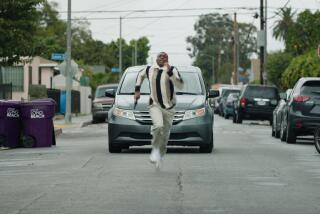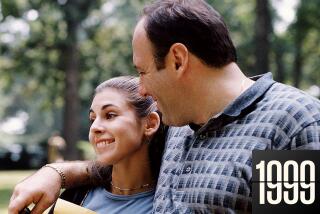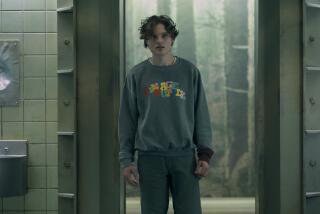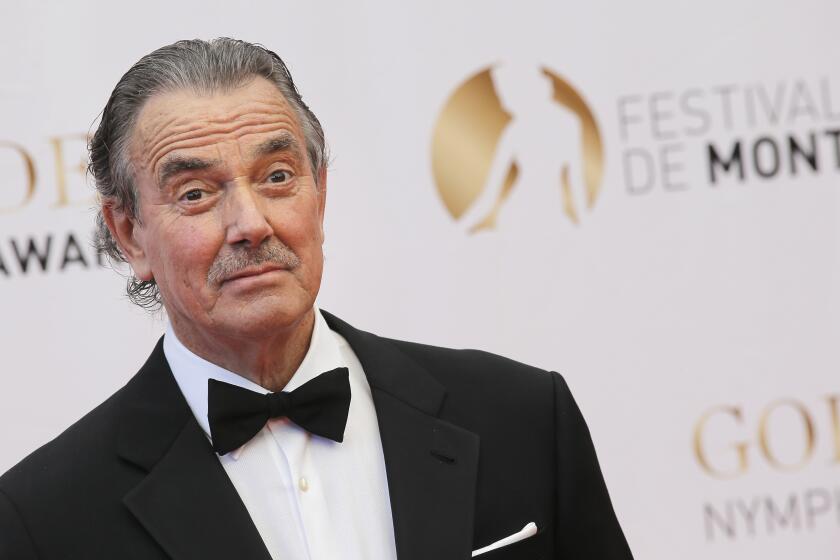‘Daredevil’ Season 1 finale review: King of Hell’s Kitchen
In the past month, at least a dozen of my “less than enlightened” (see, non-comic book fan) friends have approached me and asked if they should watch Netflix’s “Daredevil.”
The streaming service’s first foray into superhero drama was an easy sell. It’s a crime show, I’d tell them, it just happens to star a vigilante. Sure, the show has comic book elements, but it largely avoided the campier aspects of the Daredevil mythos. I mean, this is a superhero who sometimes fights a guy named Stilt Man. Stilt Man!
Over the course of 13 episodes, the series did plenty right. Vincent D’Onofrio played Wilson Fisk as a complex crime lord, savage man-child, and when the scene demanded it, a strange mixture of both. The juxtaposition of the very Catholic, very ethical lawyer Matt Murdock portrays by day with the ultra-violent, not-above-torture vigilante he becomes at night also gave this show a gravity most superhero shows lack. There’s a clear distinction between where Murdock ends and Daredevil begins.
But Daredevil was quick to strip down all that nuance in its final episode. We spent most of the season watching the show set up institutionalized graft and greed, telling a layered narrative about crime and corruption and a city in decay. But the eponymous Season 1 finale seemed like it was in a rush to get to that alley brawl between Murdock and Fisk.
Now don’t get me wrong, the comic book fan in me loved that throw down and Fisk’s “I am the one who knocks” speech during the prison break will be a signature moment for the series. But you mean to tell me that the testimony of one crooked cop brought down Wilson Fisk’s entire criminal empire, and a sitting state senator?
I know Ben Urich is dead, but I didn’t know all understanding of how crime and politics work died with him.
This episode seemed largely comatose except for its big action pieces. Something about Urich’s funeral fell flat to me, which was surprising given the weight of his death at Fisk’s hands in the previous episode. This might be a personal issue (Urich has long been a Marvel favorite of mine), but it seems silly to use Urich in the same way Nick Fury employed Agent Coulson’s baseball cards in the first Avengers film. This show really killed off one of Hell’s Kitchen’s most iconic characters in order to unite Matt Murdock, Foggy and Karen under a common goal? Yick.
Thematically, the show did a lot right in setting up Fisk’s fall. Foggy being forced to trust Murdock to know when they could use the law and when Murdock had no choice but to put on the mask, with both recognizing “where the law meets reality,” was a nice wrap-up to their schism. The inclusion of the 15th Precinct officer as a possible future ally was important as well. Someone in the New York Police Department needed to be clean, or else the narrative would become cartoonish.
But once they found Hoffman, the silly operatic montage and, again, the lunatic notion that one man’s testimony ripped down Fisk’s entire circus is just flat-out insane. We could have seen a few other people flip quickly, even a brief shot of the senator spilling his guts, might have made this better. But this premise does not work. I feel like we skipped four steps in the story.
Despite my issues with the setup, the cathartic release of watching Murdock beat the ever-loving unmerciful hell out of Fisk was a worthwhile tradeoff once we got where we were going. That brawl evoked some of the more famous Daredevil-Kingpin brawls of comic lore, with Murdock’s skill balanced against Fisk’s relentlessness and size. It really is a physical sepctacle, and it creates a certain drama that, to me, just disappears in the other Marvel properties, when gods are trading lightning bolts.
This was a fight. An ugly, vicious, straight-up donnybrook. You could feel Murdock’s teeth rattling every time he got dropped.
In the end, we got where we needed to be, and despite some late-season bumps, most of the ride was enjoyable. Murdock became the hero, maybe the symbol, his neighborhood needed. Fisk is no longer under any delusions about what he is or wants, and he has grown into the ruthless juggernaut Murdock will be forced to topple again and again in the future.
Overall? A great season, saddled by a half-decent ending. But I want more, and I want to watch them two or three episodes at a time. So you win, Netflix. I’m no longer renting space in the Kitchen. I’m buying property.
Random Thoughts Without Fear:
- I’ve ragged on her all season and I’m not done yet ... this incarnation of Karen Page just did not work for me. Maybe it’s the fact that she’s been placed in a similar role to Foggy, and simply put, Elden Henson has outperformed Deborah Ann Woll. Maybe it’s the fact this doe-eyed, obnoxiously naieve skin she wears isn’t the real character. Maybe I just wish she got capped so Ben Urich could live. But I’m hoping we delve further into her history and wind up closer to the Karen Page of the comics in Season 2. Or else Bullseye is going to need to show up and rectify the problem another way.
- Speaking of Bullseye, he’s probably near the top of the list of “Daredevil” characters who need to grace our screens next season. In no particular order I am hoping we get to see Bullseye, Elektra, Typhoid Mary, the Gladiator (Melvin Potter actually had a sketch of part of the costume in his work station before he gave Matt his new digs) and Echo.
- Comic Book Reference You May Have Missed - The picture on the front of the newspaper at the end of the episode is a real Daredevil cover, drawn by Alex Maleev. That was the end of the “King of Hell’s Kitchen,” a story which features an absolutely bloody masterpiece of a brawl between Murdock and approximately 100 Yakuza soldiers.
- Leland Owlsly finally talked himself into the grave, it would seem. If this is the last we see of the character, bravo to Bob Gunton for playing the perfect nag. It seemed like Fisk was trying to run a criminal empire with Ray Romano’s fictional father. Owlsly’s constant references to a son make me fear the actual Owl from the comics (who is kind of a mutant, but not of the X-Men variety) will appear. A word to the wise about the Owl and most of Daredevil’s other villains: They are terrible. Please don’t use any of them except the guys I mentioned two bullet points ago.
Follow @JamesQueallyLAT, because he is the man of ill-intent. Or if you want him to review the second season of Daredevil in 2016. Or if you want pictures of him in the actual Daredevil costume fighting rival newspapermen. Or both? Neither? Just follow me, you’ve already read 13 of these reviews. We’re basically family now.
More to Read
The complete guide to home viewing
Get Screen Gab for everything about the TV shows and streaming movies everyone’s talking about.
You may occasionally receive promotional content from the Los Angeles Times.







